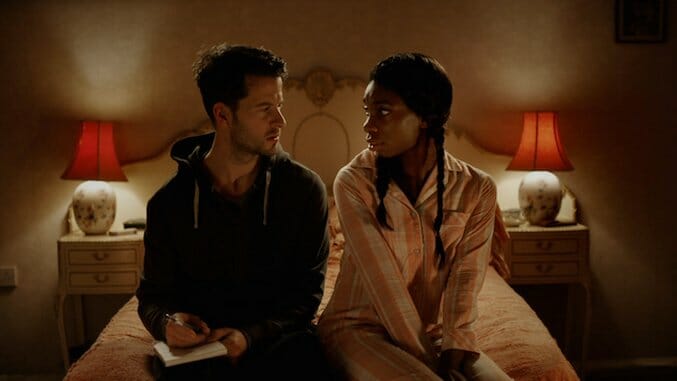How Insecure and Chewing Gum Represent a New Kind of Sexual Revolution for Black Women
Netflix
In Lil’ Kim’s 1996 debut, “Hardcore, ” the first track proper is “Big Momma Thang,” where Kim spits: I used to be scared of the dick / Now I throw lips to the shit / Handle it like a real bitch. It’s an impressive trajectory. Kim goes from being fearful and sexually inexperienced to a commanding queenpin and “real bitch.” Accordingly, her corpus from 1996’s “Hardcore” to 2016’s “Lil’ Kim Season” has her expertly navigating men and sex, outpacing her many suitors both physically and financially, then discarding them when their charms no longer satisfy. Her music celebrates a certain vision of “having it all,” and being a Black woman in control of both men and money.
Similar to Beyoncé, Trina, Lady and Rihanna, though, Kim’s career has always orbited the respectability politics of Black womanhood and whether it’s possible to be both explicit and empowering—to boast “I can spin around and keep the dick still inside” while asserting a Black feminist cause. Remember when alarmists asked if Beyoncé could still consider herself a feminist if she didn’t wear pants while performing? Black feminist scholarship eventually worked to flip the binary on its head: Instead of asking if Black women could still be feminist while extolling sex, they asked, whose feminist cause is advanced when Black women’s sexual freedom is policed under respectability?
This conversation has recently been re-energized and explored with brilliant dynamism by HBO’s Insecure, written by and starring Issa Rae, and Netflix’s U.K. comedy Chewing Gum, written by and starring Michaela Coel. Radically different in tone, both are comedies about working Black women trying to get ahead in life while searching for the kind of mythic sexual satisfaction championed by their idols in ratchet hip-hop.
In the premiere of Chewing Gum, Tracey (Coel), raised fundamentalist and still a virgin at 24, asks her best friend to give her a makeover “like Beyoncé’” to convince her deeply religious (and just as deeply closeted) fiancé to finally have sex with her. He rejects her for being openly desirous of sex, saying she looks like if a Barbie doll “rolled around in the mud then turned into a negro.” When that fails, she falls into bed with a new, white boyfriend, Connor (Robert Lonsdale). In an uproarious scene in the premiere episode, Tracey, having no clue how to kiss properly, licks Connor’s nose and bites his hair, all before triumphantly sitting on his face. Fully clothed. Confused, he muffles “What are you doing?” Tracey looks into the camera with a demented smile: “I don’t know!” It’s certainly not sexy, and who knows if it’s empowering, but there’s real joy in discovering Tracey’s sexual absurdity over the season’s six episodes.
When they eventually try intercourse, Tracey finds Connor to be prohibitively well-endowed and later comments that white men’s penises look like “raw chicken skin” to her. (She later settles on “pink balloon” to describe Connor’s penis). Outlandish and crude, Chewing Gum works because it’s an honest and unpredictable subversion of Kim’s “real bitch” arc. Black women have so long been accepted into pop culture primarily as sexual provocateurs that seeing a Black woman explicit in her failure to be a sexual queenpin is almost revelatory. Tracey leans into and explores a sexuality that’s weird, cartoonish, and ultimately doesn’t even involve penetrative sex—Chewing Gum is instead preoccupied with the awkwardness and anxieties of sex, ignoring whether it’s unflattering and disinterested in whether or not it’s empowering. It’s about honest sexual expression and the joy of learning not to care when you can’t meet a lofty standard.
-

-

-

-

-

-

-

-

-

-

-

-

-

-

-

-

-

-

-

-

-

-

-

-

-

-

-

-

-

-

-

-

-

-

-

-

-

-

-

-








































